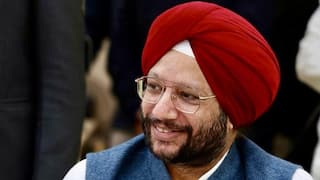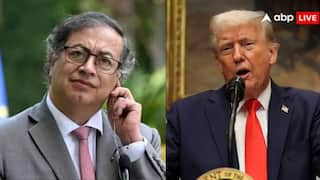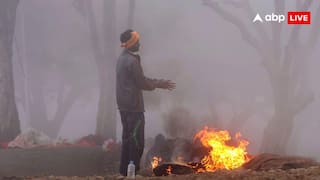In BJP's Sweep Of Tripura Panchayat Results, Voters' Loud Message On Opposition In Democracy

This week, the results of the three-tier panchayat elections were declared, with the ruling Bharatiya Janata Party winning most of the seats. The saffron party won all 8 Zilla Parishads, 34 out of 35 panchayat samitis, and 583 out of 606 panchayats. BJP’s ally TIPRA Motha won 1 panchayat uncontested.
It is worth mentioning that the BJP had won 70% of the seats uncontested, amid allegations of intimidation and prevention of Opposition candidates from filing their nominations. One Opposition candidate from the South Tripura Zilla Parishad — Badal Shill of the Communist Party of India (Marxist) — died after he was attacked by miscreants, allegedly belonging to the BJP. There were allegations of rigging on the voting day across parts of the state. On counting day, too, the Opposition alleged that the ruling party, with the help of the state machinery, forcefully changed the people’s mandate in some places — a very serious allegation that raises significant concerns about the fairness of the election results.
However, amid the BJP’s sweep across the state, there is an important message for the party — one cannot deny the importance of the Opposition in a functioning democracy. In Unakoti and North Tripura districts, the Opposition was able to put up a fight against the BJP. The Congress won the lone Gournagar Panchayat Samiti under Gournagar Block in the Unakoti district. It secured 8 seats, while the BJP and CPM won 3 and 2 seats, respectively. Of the 20 panchayats under the Gournagar Block, the Opposition secured 15 panchayats — the only block in the state where the BJP was unable to win a majority of the panchayats.
The other block, apart from Gournagar Block, where the Opposition was able to register its presence amid the BJP sweep, was Kadamtala Block in North Tripura, where the CPM secured two panchayats. Two other panchayats saw a hung verdict — however, if the CPM and Congress come together, they could form the government in these panchayats too. The CPM also won two seats in the Kadamtala Panchayat Samiti.
Voters also wanted to give space to the Opposition for the sake of democracy. This is clear from the fact that while the BJP won all 9 seats (6 uncontested) in the Dhalai Zilla Parishad, the CPM was able to secure victory in 2 seats of the Ambassa Panchayat Samiti under the Dhalai Zilla Parishad. Importantly, the CPM did not contest a single seat in the Dhalai Zilla Parishad, alleging political terror.
The Opposition won a total of 20 panchayats. Now, if the CPM and Congress join hands in the two hung panchayats, the number of panchayats under Opposition control would rise to 22. Compared to the last rural body elections, the Opposition performed slightly better this time, despite the various undemocratic actions of the ruling party aimed at reducing the elections to a farce.
The Congress, particularly Kailashahar MLA Birajit Sinha, was able to maintain its hold in the Gournagar Block of Unakoti district by restricting the BJP and securing a majority in 8 panchayats on its own, and in 7 panchayats in alliance with the CPM. On the other hand, the CPM, which did not secure any panchayat last time, was able to secure a majority on its own in 5 panchayats — 3 in North Tripura, 1 in Dhalai, and 1 in Sipahijala.
When looking at the results, it becomes clear that the voters preferred democracy. Despite the ruling party, with the help of state machinery, reducing the election to a farce in an attempt to establish single-party rule in every rural area of the state, voters also supported Opposition candidates in areas where they saw the Opposition as a viable alternative. This is a clear message from the voters to the BJP to respect democracy and provide space for the Opposition.
Will Poaching Congress MLAs Help NPP?
There are reports that three Congress MLAs are likely to join the ruling National People’s Party (NPP) soon. According to these reports, the ruling party has promised a cabinet berth to one of these MLAs. Currently, the grand old party has four legislators. So, if the MLAs join the ruling party, they would not face the anti-defection law.
These speculations come at a time when there has been talk about the status of a new Leader of Opposition in the assembly. After Congress legislator Saleng Sangma was elected to the Lok Sabha, the main Opposition party already had one seat less than the TMC, led by former Chief Minister Mukul Sangma. Saleng Sangma was also the chief whip of the Congress.
If these three Congress MLAs join the NPP, the ruling Conrad Sangma-led NPP, currently with 28 legislators and running a coalition government with the United Democratic Party, Bharatiya Janata Party, and Hill State People’s Democratic Party, would have a majority on its own and would have leverage in dealing with the aspirations of its coalition partners.
If these defections happen, the NPP could get a significant boost in numbers in the state assembly. But the party would be mistaken to believe that this will drastically change the ground reality any time soon. The Lok Sabha election results, where the NPP lost its bastion — the Tura Lok Sabha seat — to Congress, were a wake-up call for the ruling party. The Tura Lok Sabha result showed that Congress, despite losing 12 MLAs led by Mukul Sangma, is still a force to reckon with in the state. Importantly, Mukul comes from the Garo Hills, and the Tura seat falls under Garo Hills.
On the other hand, the NPP has yet to find a strategy to counter the VPP, which is playing the Khasi card in the Khasi region. It is worth mentioning that the NPP is not a strong force in the Khasi Hills, which sends 29 MLAs to the state assembly. In the last assembly polls, the ruling party, which swept the Garo Hills, was able to secure only four seats in the Khasi Hills.
ENPO-MHA Meeting: Is A Solution On The Horizon?
This week, the Eastern Naga People’s Organisation (ENPO), led by its new team of office bearers, held a meeting with the Ministry of Home Affairs (MHA) headed by AK Mishra in Guwahati. It is worth noting that the ENPO is the apex body of seven Naga tribes in Eastern Nagaland. The organisation has been demanding a Frontier Nagaland Territory (FNT) comprising six eastern districts of Nagaland.
To make its demand heard, the ENPO boycotted the recent Lok Sabha polls as well as the Urban Local Body polls — and such was the power of the organization that the six districts — Kiphire, Longleng, Mon, Tuensang, Noklak, and Shamator — saw zero voting in both polls. This was definitely a blow to the state’s democracy as well as the country’s democracy.
According to a report by the Nagaland Post, Mishra addressed all existing confusion regarding the FNT issue. One can hope that this discussion will move towards a workable solution, with democracy returning to the six districts of Eastern Nagaland, where there was no election for the Urban Local Bodies.
The author is a political commentator.
[Disclaimer: The opinions, beliefs, and views expressed by the various authors and forum participants on this website are personal and do not reflect the opinions, beliefs, and views of ABP Network Pvt. Ltd.]


























